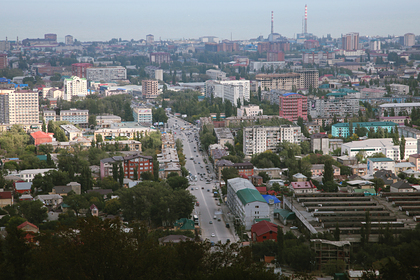“Rossiyskaya Gazeta”: dismantling of illegally erected high-rise buildings has begun in Makhachkala 
Mass demolition of illegally erected multi-storey buildings has begun in the capital of Dagestan. There are about 500 of them in Makhachkala, many of them are inhabited by people, Rossiyskaya Gazeta writes. The city administration will determine the fate of the samostroev.
As the newspaper notes, Makhachkala is located between the mountains and the sea, so there are practically no free plots for building there. Hundreds of illegally appeared high-rise buildings in the city were revealed by “RosKapStroy” under the Ministry of Construction of Russia. Experts stated that most of these buildings need strengthening, and then they can be used. About a hundred houses are conditionally recognized as suitable for living, but according to the law, it is impossible to settle in them.
The republican Minstroy newspaper said that the buildings can only be legalized through the courts – developers, apartment owners and city authorities should jointly file the relevant claims. Meanwhile, the process of dismantling the squatter structures has already been launched. People who managed to settle down in illegal buildings are afraid that they will be left without housing and no one will compensate them for the money spent.
It is impossible to assign such citizens the status of defrauded co-investors – the transactions were concluded almost verbally, apartments were bought from unofficial developers, without registration of contracts in Rosreestr. Most likely, they will not evict people. But the city fears that this will further stimulate illegal construction.
Earlier, the Prosecutor General of Russia Igor Krasnov suggested issuing housing certificates with an indexed face value to deceived real estate investors. This initiative will be considered by the government, Krasnov said during a speech in the State Duma. He noted that since the beginning of 2021, problems with 387 new buildings have been resolved in the country, more than 35 thousand equity holders have been restored to their rights. But this share is small – only 22 percent of the total number of buyers left without apartments.